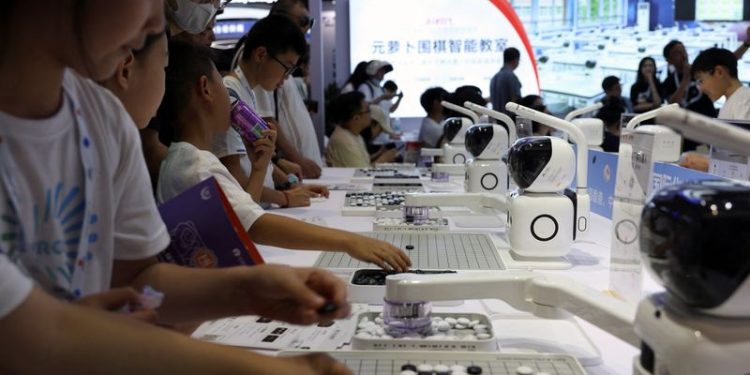BEIJING (Reuters) – Loss-making Chinese AI company SenseTime Group said on Tuesday it has completed a major organizational restructuring aimed at ramping up its shift toward generative AI technologies.
The Hong Kong-listed company, previously focused on computer vision and surveillance technologies, has accelerated its transformation into generative AI following the industry-wide surge triggered by OpenAI’s ChatGPT.
SenseTime was one of China’s hottest AI firms but has fallen behind rivals amid the generative AI boom. Its shares have dropped 61% from their issue price three years ago.
The company wants to make generative AI its core business to drive growth, profitability and financial soundness, it said in a filing to the Hong Kong stock exchange.
The restructuring comes as SenseTime’s computer vision business declines, with its “traditional AI” segment down 50.6% in the first half of this year. The company has yet to turn a profit since its founding a decade ago.
SenseTime launched its large language model, SenseNova, in early 2023, claiming capabilities comparable to OpenAI’s latest GPT version.
In 2021, the United States put SenseTime on an export controls list alleging it had created facial-recognition software used to oppress Uyghur Muslims. The company said at the time the accusation was unfounded and that it was compliant with laws.
SenseTime’s restructuring sets up several business units, with separate CEOs, including for smart auto, domestic robotics, smart healthcare, and smart retail, the company said in its filing.














